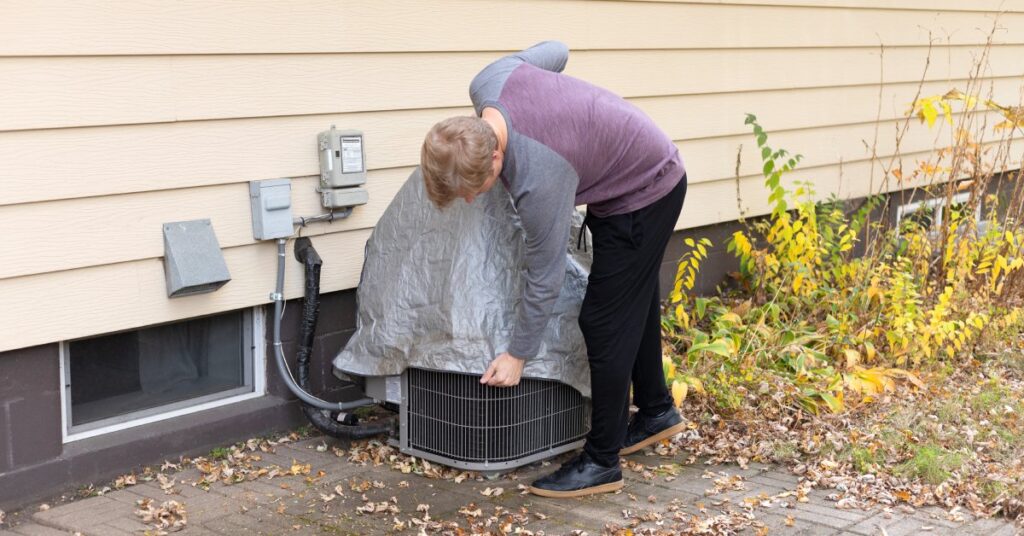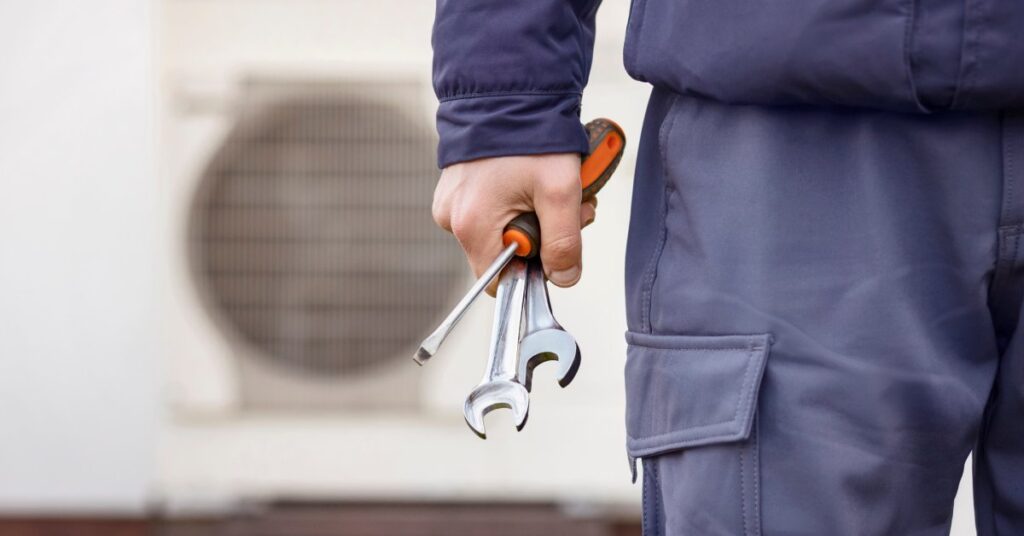When meteorologists sound the warning for a hurricane, the most important things you can do are prepare your home and make a plan to keep your family safe. Since you’ll be trapped inside as the rain pours and strong winds blow, you’ll want to keep yourself as comfortable as possible. Typically, this means stocking up on food and carving out an area of the house where you can hunker down and wait for the storm to pass.
Since you’ll be trapped inside, you may wonder whether you should turn off your AC during the hurricane. Read on for answers to this question and more to keep your family and HVAC system safe!
Do You Leave Your AC On?
The fast answer is no. You should not leave your AC on once a tropical storm hits. Hurricanes generate severe weather conditions, including high winds and heavy rains, which can result in frequent power surges. While leaving your air conditioner on may be more comfortable and help combat humidity, the risks outweigh the benefits. Power surges can fry your compressor, circuit board, and wiring. Even momentary outages followed by surges when power returns can cause long-lasting harm.
Avoiding Electrical Malfunctions
Water and electricity create deadly combinations, and hurricanes often cause flooding or water intrusions. If water enters the electrical components of your AC, it can cause short circuits or even permanent electrical failure.
Turning it off doesn’t necessarily save the unit if water gets into it. Still, it does reduce the risk of further damage to the electrical components and ensures the system isn’t actively running when exposed to potential hazards.
Pro Tip: Invest in a Backup Generator
A backup generator can help maintain essential power during and after a hurricane. While it’s not advisable to leave your AC unit running—a generator won’t protect the outdoor unit from potential damage—you can use the generator to power a fan in the room while waiting out the storm.
Reducing Home and Family Risks
Leaving electrical appliances on during a hurricane exposes them to potential damage. For instance, running your AC unit during the storm risks power surges or water intrusion, leading to costly repairs or reduced performance. Likewise, strong winds can blow debris into the outdoor unit, potentially damaging the fan or other critical components.
How To Protect Your AC Unit During Hurricane Season

Now that we’ve discussed whether you should turn off your AC during a hurricane, let’s explore how you can protect the unit during storm season. After all, proper preparation significantly enhances your AC’s resilience to hurricanes.
Turn Off the System Before It’s Too Late
While you don’t have to turn off your AC unit the moment a meteorologist forecasts a storm on the Weather Channel, you should remain wary. Pay attention to the weather outside and watch for local storm alerts on your phone.
Once the winds pick up and the rain hits, the safest option is to turn off your AC unit. The weather can change quickly, and you don’t want until it’s too dangerous to act.
Secure the Outdoor Unit
Use the days before the storm to prepare your home and family. This means taking time to check the outdoor condenser unit and protect it against flying debris, heavy winds, and other storm-related hazards.
Protect your outside unit by taking the following steps.
- Clear the area around it by removing outside furniture and loose objects.
- Remove any debris from the top of the unit. If it blows into the outdoor condenser, it could damage the fan blades.
- Anchor the unit to the ground with hurricane straps or specialized brackets designed for extreme weather conditions.
- Consider investing in protective coverings for AC units to shield the condenser from flying debris.
These steps help prevent extensive physical damage and system malfunctions caused by storm debris and high winds.
Pre-Cool Your Home
The thought of going without AC for several hours or days may sound unpleasant, especially during a hurricane when humidity can spike. Since you can’t turn your air conditioning on during the storm, the next best option is to pre-cool your home.
Cooling your home in advance helps improve comfort without compromising safety. In the days before the storm, lower your thermostat a few degrees below your usual setting and seal all windows and doors to keep the cool air inside.
Turn Off Power During the Storm
Turning off the power to your home and the entire AC system provides an additional safety layer against electrical hazards. Locate the main breaker box and follow proper safety precautions to turn off the power. Ensure all other vulnerable electrical systems in your home remain turned off to further mitigate risks.
What To Do After a Storm
Once the hurricane passes and it’s safe to leave your safe spot, begin checking areas of your property and the AC system. Here are some essential post-storm tasks.
Check Your AC Unit for Damage

Inspect the outdoor unit for visible signs of damage, such as dents or broken components. Be cautious during HVAC inspections, and don’t touch anything if the area is flooded or the unit appears damaged. You should also check the indoor unit and ensure that there are no leaks or damage to the coils or vents.
Moreover, avoid turning the system back on if you notice any irregularities, as this could cause additional damage. Instead, wait until the unit has been assessed by a trained technician and deemed safe to use.
Clear Any Debris
As you inspect the HVAC system, you may notice debris or dirt buildup around the exterior unit. This could restrict airflow and reduce the system’s efficiency. Clear any debris from around the unit and keep it free from obstructions.
Hire a Professional for Inspection and Repairs
After visually inspecting for damages, contact a licensed HVAC technician for a thorough assessment. An AC contractor can identify less obvious problems, including refrigerant leaks or internal electrical damage. Ensuring you address any issues immediately prevents costly repairs and enhances the system’s safety and efficiency.
Moreover, a professional can also clean your system’s internal components or replace parts as needed. This keeps your unit running properly and reduces the risk of long-term damage that could completely ruin the machine.
Contact Style Crest
Protecting your AC unit during a hurricane helps prevent costly damage from power surges, water intrusion, or debris. Since 1970, Style Crest has remained a trusted name in delivering high-quality HVAC solutions and expert advice. Turn to the professionals to stay prepared and ensure your system is in peak condition.